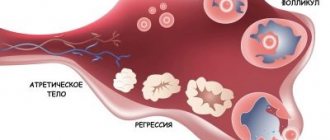After marriage, the couple begins to hope for the birth of a child. A family is incomplete without the hugs and laughter of a child. When a child is born, the parents begin a new life. The feeling of fatherhood and motherhood is the best thing that can happen to a person. But it’s sad that every year couples are increasingly turning to specialists for help with problems such as infertility. There are several factors that are responsible for this problem such as our lifestyle, poor diet, hectic schedule and genetic factors. The question arises how to get rid of this problem. Couples are looking for a solution to their infertility problem. Ayurveda is a new ray of hope for these people because Ayurveda has various herbs that support good health of the male and female reproductive system. These herbs are very effective in relieving infertility naturally without causing any negative impact on your health.
In what cases are fertility pills effective?
Treatment of infertility with tablets is carried out both as monotherapy and as part of complex therapy when the patient requires surgical intervention.
Fertility pills are used:
- for correction of hormonal levels and endocrine disorders;
- treatment of inflammatory, viral and infectious diseases of the urogenital area;
- at the stage of rehabilitation after surgery;
- with infertility of unknown etiology against the background of the general health of the partners.
Self-medication for infertility is dangerous, since uncontrolled use of drugs with various pharmacological properties can disrupt the natural balance of active substances in the body and lead to irreversible consequences: absolute, that is, incurable infertility, endocrine, sexual dysfunction.
To obtain a positive result, constant medical supervision and laboratory diagnostics are important. The average duration of treatment is 2-3 months, pregnancy usually occurs six months after completion.
Side effects
Many women experience side effects as a result of using fertility drugs. This is especially common when taking hormonal drugs.
Some of the most common side effects include the following:
- emotional disorders, including mood swings, anxiety and depression;
- temporary physiological effects such as nausea, vomiting, headaches, cramps and breast tenderness;
- ovarian hyperstimulation syndrome;
- multiple births;
- increased risk of pregnancy loss.
Some scientists believe that certain fertility drugs increase the risk of ovarian cancer and uterine (endometrial) cancer.
What are the types of fertility drugs?
Depending on the diagnostic results, hormones, antibiotics, immunomodulators, vitamin complexes, dietary supplements, and herbal preparations are prescribed.
Hormones
Since hormonal imbalance is considered one of the most common causes of both male and female infertility, patients are prescribed Duphaston tablets, they normalize progesterone levels and stabilize the reproductive system as a whole. In case of individual intolerance, the drug is replaced with analogues, including Serox, Longidaza, Cerezym, Serta, and Utrozhestan.
Antibiotics
Menstrual irregularities and miscarriage are often associated with chronic inflammation and infections of the genital organs. In the treatment of complications such as oophoritis, salpingitis, both in primary and combined forms, antibiotics and antimicrobial agents in tablets help: Ampicillin, Oxacillin, Azithromycin, Sumamed, Doxycycline, Abaktal, Trichopolum.
Immunomodulators
The purpose of the drugs is to strengthen local and general immunity. Wobenzym tablets prevent the formation of antibodies to sperm and fertilized eggs. Galavit, Amiksin, Neovir, in addition to their immunostimulating effect, work as an antiviral agent and reduce the frequency of exacerbations of chronic diseases.
Vitamin complexes
Lack of vitamins negatively affects the ability to conceive. Folic acid, which must be taken in combination with B vitamins, helps compensate for vitamin deficiency and anemia. They help increase progesterone levels.
Dietary supplements cannot be taken, since they contain not only plant extracts, but also vitamins and active substances that can completely block or change the degree of impact of antibiotics and immunostimulants.
Traditional medicine is used only in combination with medications for hygiene and prevention of diseases of the genitourinary system. The doctor should also select them.
Varicocele and its treatment
Varicocele and infertility in men are closely related. This pathology refers to secretory disorders and is associated with circulatory disorders and dilation of the veins of the scrotum. With varicose veins of the testicle, blood stagnates, which subsequently leads to problems with sexual arousal or ejaculation.
This disease can be cured using traditional therapy, but in severe cases of the disease, surgery is necessary.
Treatment of male infertility with varicocele involves interrupting retrograde blood flow through the testicular vein. This eliminates hemodynamic disturbances in the testicle.
We recommend reading a large article about infertility on our website.
Drugs for infertility in women
If problems with conception are caused not by the presence of adhesions in the fallopian tubes, but by hormonal disorders, the following is prescribed:
- Clomiphene is a non-steroidal drug that gives a positive result in 80% of cases. Stimulates ovulation in case of ovarian hypofunction, enhances the secretion of sex hormones. Contraindicated for pregnant women.
- Duphaston is a hormonal drug prescribed for luteal insufficiency. Prevents the growth of the endometrium. After conception, the medication is continued (to prevent miscarriage). Intolerance to the drug is often noted.
- Utrozhestan is an analogue of Duphaston, prescribed for cervical insufficiency. Stimulates the production of progesterone, which is necessary to maintain the viability of the fertilized cell and the elasticity of the uterine tissue. In some women it causes drowsiness and loss of strength.
- Wobenzym is an immunomodulator that increases the body's resistance to infections, promotes ovulation, and eliminates toxins. In most cases, it does not cause any adverse reactions even with long-term use.
- Bromocriptine – helps conception in case of endocrine disorders, stabilizes the menstrual cycle. It is not prescribed to patients suffering from changes in blood pressure, diseases of the stomach, intestines, or mental disorders.
Taking the following drugs increases the likelihood of fertilization during IVF: Zoladex, Clostilbegit, Profazi, Choragon, but taking them without a doctor’s prescription is strictly prohibited.
Reasons for lack of ovulation
Lack of ovulation can be caused by a variety of reasons. For example, in young girls this problem is usually caused by weight loss, emotional turmoil, chronic lack of sleep, and brain injuries.
Preventing infertility is easier than treating it
In women from 20 to 35 years of age, ovulation disappears most often due to inflammatory diseases, polycystic ovary syndrome, diseases of the adrenal glands and thyroid gland.
The culprits of anovulatory infertility may be hormonal imbalance (for example, excess prolactin or testosterone), as well as complications after termination of pregnancy or childbirth.
After 35 years, the lack of ovulation can be caused not only by the listed reasons, but also by depletion of the supply of eggs, aging of the reproductive system and various diseases.
Fertility pills for men
The course of taking medications takes at least 65 days - this is the duration of sperm maturation in the male body.
The most popular:
- Speman is one of the best prostatotropic drugs. Helps improve sperm quality (stimulates spermatogenesis, thins ejaculate), helps reduce congestion in the prostate gland. It is used to treat urogenital pathologies and sexual dysfunction caused by aging.
- Tribestan is an effective and safe drug. It is made from natural phytocomponents, so the course of treatment is at least 3 months. Increases sexual activity, improves sperm morphology, stabilizes hormonal balance. The tablets normalize intestinal tone and prevent the formation of blood clots. Well tolerated by most patients.
Mumps and infertility
Infertility in men after mumps is possible due to improper or untimely treatment of the infection. Mumps (better known as mumps) affects not only the salivary glands, but also the gonads in boys and men.
Infertility after mumps is almost impossible to diagnose before puberty. The consequences of the infectious disease do not affect sexual life; there are no symptoms. As a rule, patients seek diagnosis after long attempts to conceive a child.
Diagnosis includes a spermogram and ultrasound of the scrotum. The first analysis shows whether there are healthy, active sperm, and ultrasound shows atrophied areas of the testicles.
Treatment of male infertility caused by the consequences of mumps occurs using hormonal, immune therapy, and in severe cases, testicular surgery.
Traditional treatment includes prescribing:
- hormonal medications;
- immunostimulants:
- pink radiols;
- ginseng;
- medications that improve blood circulation in the vessels of the testicles (pentoxifylline);
- vitamins (A, B, E, C).
You can avoid the disease by getting vaccinated. Immunity after the vaccine lasts for 12 years. If a boy or man is already sick, you need to carefully monitor your body temperature. Since when it increases, there is a risk of inflammation of the scrotum. To cure the pathology without complications, you need to take antiviral drugs, a full course, according to the regimen proposed by the doctor.
New methods of treating infertility
Experts describe the latest advances in infertility treatment.
For one in eight couples in the United States, pregnancy is a pipe dream. But if they immediately seek medical help, the prognosis for them is quite optimistic. Infertility treatment does not stand still, the choice of treatment methods is expanding, doctors are becoming more experienced and qualified. Treatment has become more aggressive, especially for women over 40.
“Treatment success rates have improved significantly over the past 10 years,” says Moussa Chamonki, MD, director of in vitro fertilization (IVF) and a reproductive endocrinologist at the University of California, Los Angeles Geffen School of Medicine. “The average fertility rate at fertility clinics has doubled over the past decade,” he says.
In 2003, more than 48,000 children were born in the United States as a result of assisted reproductive technology. This is 2,000 more than in 2002 and 7,000 more than in 2001.
The earlier the better
“Often, couples who are having trouble conceiving are simply told by family members to relax, take a vacation, or quit their job in order to get pregnant,” says Eric Shurrey, former president of the Society for Assisted Reproductive Technology (ASRT) and a fertility specialist in Denver.
In his opinion, this will not help couples solve infertility problems. Therefore, a wise decision on their part would be to seek medical help. If a woman is under 39 years old and has not been able to conceive naturally for more than a year, it’s time to consult a specialist. If she is over 39 years old, she needs to be examined after 6 months of unsuccessful attempts to get pregnant.
Treatment options
“Sometimes infertility can be treated with medication or surgery on the reproductive organs. Another standard treatment for infertility is one to three cycles of ovarian stimulation and intrauterine insemination, says Guy Ringler, MD, a reproductive endocrinologist at Santa Monica Medical Center.
This involves stimulating the ovaries to produce eggs using Clomid, followed by the injection of sperm into the uterine cavity.
He said the treatment would “increase pregnancy rates from 3% per month to 12% to 15% per month among women under 40, and 5% to 7% among women over 40.”
"But a lot of couples say, 'We want to be more aggressive,'" Ringler says. “Often they say this because of age and also because of the high success rate of aggressive treatments.” Many people seek help after three months of unsuccessful attempts.
“If they undergo in vitro fertilization, their chances of getting pregnant increase dramatically,” he says. In IVF, a woman's eggs are surgically removed from her ovary, mixed with her partner's sperm outside her body, fertilized, and then the embryo is inserted into the uterus. "If a woman is under 40, the IVF success rate is 40% on the first attempt," says Ringler. If a woman is over 40 years old, success will largely depend on age.
Steven J. Ory, MD, a reproductive endocrinologist in Margate, Florida, and President of the American Society for Reproductive Medicine, agrees. According to him, for women 40-42 years old, the success rate of IVF is about 15%. But after 42 years it decreases to 5%. He notes that now both doctors and patients prefer to move on to the IVF procedure faster, despite the woman’s age.
Donor eggs
“The use of donor eggs is an additional option for infertility treatment, especially for older women,” says Dr. Ringler. While many women are negative about the idea of using another woman's egg, "they have to go through the process of accepting the idea," he says. Their desire to have a child often wins the battle with genetics. “If a woman is over 43 years old, she is most likely to become pregnant using a donor egg,” he says.
Dr. Ory agrees. “Patients over 45 cannot get pregnant if they use their own eggs,” he says, based on experience at his Florida clinic.
“For male infertility, intracytoplasmic sperm injection (ICSI) is used,” says Dr. Shamonki. One sperm is injected into the egg. “The use of ICSI is producing encouraging results,” he says. Male infertility accounts for 20% of all cases of infertility.
“It is important to undergo a comprehensive evaluation to determine the cause of infertility before initiating treatment, especially aggressive treatment,” cautions Dr. Ringler. Otherwise, you may end up getting involved in lengthy and expensive treatment when your specific case requires simpler treatment.
Transfer of fewer embryos
The decision to transfer fewer embryos was made at the annual meeting of the American Society for Reproductive Medicine (ASRM) in 2006. According to the recommendations, no more than two embryos can be transferred at a time to women under 35 years of age. The number of embryos for women over 35 years of age will depend on their age and the number of days that have passed since the embryo was fertilized.
For example, for a woman over 40 years old, it is recommended to transfer no more than five embryos that were fertilized two to three days ago, and no more than three embryos that were fertilized five to six days ago.
According to Dr. Shurray, the main goal of infertility treatment is to avoid multiple pregnancies, since they carry a risk of preterm birth and health problems for newborns. “Patients are happy about conceiving twins, but from a health point of view it is a big risk,” he says.
Eastern techniques
Many clinics now offer alternative or complementary fertility treatments. “We often refer patients for additional therapy, especially if primary treatments are not working,” says Dr. Ringler.
The most common complementary treatment techniques include acupuncture and Chinese herbal medicine. But traditional reproductive endocrinologists have a more favorable attitude towards acupuncture. “There are studies that show that using acupuncture before embryo transfer increases the chances of pregnancy,” says Dr. Ringler.
In a 2006 study, three acupuncture sessions were performed before embryo transfer and one session after the transfer. The rate of successful embryo implantation was quite high in women who received a fresh embryo and in women who received a frozen embryo.
Another study of 258 women found that the use of needle acupuncture (compared to laser, relaxation and no acupuncture) increased pregnancy rates by 10%.
“Acupuncture and other complementary therapies can help reduce stress, which is important for a successful pregnancy,” says Dr. Ringler.
How to best stimulate eggs
For years, doctors have used Clomid to stimulate women's bodies to produce eggs. Recently, doctors have prescribed the drug Femara to stimulate ovulation.
But in 2005, the American Society for Reproductive Medicine published sensational research data, which noted that the use of the drug Femara provokes congenital malformations.
Following this, Health Canada and the drug's manufacturers, Novartis Pharmaceuticals, asked doctors to refrain from using Femara in the treatment of infertility.
Later it turned out that there is no significant difference between the use of Clomid and Femara, i.e. The use of Femara by women is not associated with the occurrence of congenital malformations in their children.
“But the results of the first study have implications for the use of Femara,” says Dr. Ori.
Cost of treatment
Infertility treatment can be very expensive. pregnancy According to the American Society for Reproductive Medicine, one cycle of IVF costs $12,000. Ovarian stimulation and artificial insemination cost from $500 to $1,000 per cycle.
Not all insurances cover the costs of infertility treatment. Call your insurance company and find out all the information you need.
Decrease in sex hormones as a cause of infertility
A woman cannot become a mother due to obstruction of the fallopian tubes, the development of adhesions, endometriosis, hormonal and other disorders. The use of oral contraceptives does not cause the inability to become pregnant. There are no clinical study results confirming that infertility develops after taking contraceptives.
After you stop taking birth control pills, pregnancy almost always occurs. In most women, complete restoration of gonadal function occurs within 6 months. The normal menstrual cycle resumes.
Difficulties in getting pregnant are mainly due to hormonal imbalances. Lack of sex hormones and disorders of the hypothalamic-pituitary system negatively affect reproductive health and are the main cause of infertility.
Antibiotics
If infertility is caused by infectious processes of the reproductive organs, the gynecologist prescribes a course of antibacterial therapy. In this case, the drugs Sumamed and Rulid may be prescribed.
Sumamed eliminates any form of bacterial infection from the body. Rulid destroys the protein synthesis of microorganisms, depriving them of the ability to reproduce and continue to exist in a woman’s body.
Hormonal drugs
Hormonal drugs for infertility in women are prescribed for menstrual cycle disorders. These include the following tablets:
- Duphaston;
- Wobenzym;
- Clomid;
- Tribestan;
- Bromocriptine;
- Utrozhestan;
- Thyroxine.
Duphaston
The hormonal drug Duphaston contains substances that imitate the properties of corpus luteum hormones. Their action promotes the penetration of eggs into the body of the uterus, which creates conditions for a successful pregnancy.
Also, the therapeutic formula of the drug controls endometrial tissue, preventing its growth. Often, a pathologically overgrown layer of the endometrium blocks eggs from accessing the uterus, which is why pregnancy cannot occur.
If conception cannot occur due to lutein deficiency, Duphaston is prescribed. The tablets are taken for six months from the 14th to the 25th day of the monthly cycle. Even after conception, the drug continues to be taken to prevent possible fetal rejection.
Tribestan replaces Duphaston and is its analogue.
Wobenzym
The drug activates the body's immune system in the presence of a viral infection. This is an immunomodulatory agent that actively affects ovulation. The tablets are taken for 2 or 3 months in a row, five capsules daily. If there are contraindications for use, Wobenzym can be replaced with other medications.
Clomid
This drug is one of the most popular infertility drugs for women.
Clomid regulates the monthly cycle and ovulation by increasing or decreasing estrogen production. The medicine is effective even if you have not had your period for 5 or 6 months. Clomid stimulates the onset of ovulation. A side effect may be multiple pregnancy.
Note! For hormonal disorders, the gynecologist may prescribe the hormone estrogen in capsule form.
Bromocriptine
The drug is prescribed for pathologies of the endocrine system that provoke infertility. Irregularity of the monthly cycle prevents conception, which can be corrected with the help of this medicine. The treatment regimen is calculated individually.
Utrozhestan
This remedy is prescribed for increased production of male hormone by the female body. Utrozhestan also prepares the uterus to receive a fertilized germ cell, followed by its attachment to the wall. The medicine is also taken after pregnancy in order to preserve the fetus.
Thyroxine
This drug is prescribed for uncontrolled production of female sex hormones, due to which conception does not occur. Thyroxine also corrects metabolic processes in the body.
Dexamethasone
The medicine is prescribed for infertility due to previous or existing infectious diseases that prevent conception. The product also has a pronounced anti-inflammatory effect.
Other medications for male infertility
The cause of infertility may be obvious and determined through testing. However, it is often carefully veiled, and it is extremely difficult to understand what caused infertility. A man may have all indicators normal, but conception does not occur. Understanding what was the true symptom or whether a complex of factors is to blame is not an easy task. In addition to deviations in sperm production and its quantity in the ejaculate, there are a number of other deviations:
- hormonal dysfunction, which leads to endocrine infertility,
- inflammatory processes,
- injuries,
- secondary factors: poor diet, smoking, sedentary lifestyle, lack of regular sexual intercourse, previous diseases (acute respiratory infections, acute respiratory viral infections, follicular tonsillitis), long-term use of antibiotics.
If the initial tests show problems with hormones, or all sperm parameters are normal, the patient must take new blood samples from an endocrinologist, who, in turn, will prescribe the necessary drug.
When talking with attending physicians, it is recommended to mention previous diseases that, one way or another, are not indicated in the medical history and are not recorded in the patient’s hospital record. This will speed up both the process and the quality of treatment.
Thus, it is obvious that there is no miracle pill for male infertility, and infertility treatment must be approached in a comprehensive manner. It is necessary to exclude any possible causes of the disease and, if the causes are not known for certain, several strategies for curing the disease will have to be combined.










